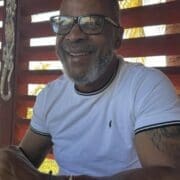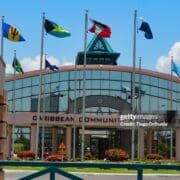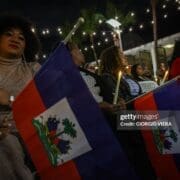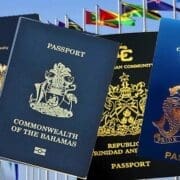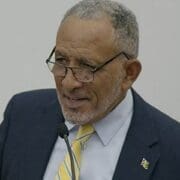News Americas, NEW YORK, NY, Thurs. Feb. 5, 2026: There are writers who explain the world, and then there are writers who teach you how to survive inside it. For me, James Baldwin has always been the latter. His words did not merely interpret history. They warned us. They prepared us. They loved us fiercely enough to tell the truth.
A Love Letter to Black Women and Children – Black History Month 2026
Baldwin gave language to a generation that had been told its suffering was imaginary and its dignity negotiable. Because of voices like his, I can walk my communities and drink water where fountains once had barriers. I can enter stores without being forced to wait in lines of humiliation. I can sit in restaurants and be served as a human being. These are not small victories. They are moral inheritances.
Yet, there is a part of Baldwin’s story that still demands to be told, especially during Black History Month in 2026. Baldwin did not only write about laws and protests. He wrote about Black children. About their right to grow up without being spiritually crushed by a society that refuses to see them as innocent. One of his most profound offerings was his 1962 essay, My Dungeon Shook, a letter to his nephew written on the hundredth anniversary of emancipation.
In that letter, Baldwin confessed: “I have drafted this letter five times and torn it up five times.” He could not escape the face of his nephew, which was also the face of his brother, and the face of his father, and the face of every Black boy shaped by fear before he ever learned joy. Baldwin described the boy as tough, dark, vulnerable, and moody, sounding truculent so that no one would think he was soft. Baldwin knew the armor Black boys are forced to wear. He knew how early it was given to them.
He also knew what happens when society convinces a man that he is what it says he is. Baldwin wrote of his own father, defeated long before death, because at the bottom of his heart he believed the lie that certain people told about him. That belief made him bitter. Holy in pain. Rigid in sorrow.
Baldwin’s letter was never meant to be sealed in history. It was meant to be read again and again by Black mothers and Black children whenever the world tried to tell them who they were.
And here we are, in 2026, still needing that letter.
The names alone testify that Baldwin’s warning was not outdated. Amadou Diallo. Sean Bell. Tamir Rice. Eric Garner. Michael Brown. Alton Sterling. Philando Castile. Breonna Taylor. George Floyd. Elijah McClain. These are not simply victims of incidents. They are chapters in an unfinished American sentence. They are reminders that the description Baldwin gave, tough, dark, vulnerable, moody, still clings to Black bodies in the eyes of systems built on fear.
Many of these men and women died in the arms of institutions that saw them not as children, not as sons or daughters, but as threats. Just as Baldwin feared, so many families did not get to see their loved ones grow old. Their lives were interrupted by the same lie Baldwin named more than sixty years ago.
What Do We Have In 2026?
We have a moral struggle that never concluded. We have progress that looks impressive from a distance but fragile up close. We have Black people in leadership, Black people with wealth, Black people with education. These are real achievements. But opportunity does not equal safety. Opportunity does not equal justice. Opportunity does not erase fear.
Progress is not a cover for what happens beneath the surface.
This is where this love letter must be written, not to deny growth, but to refuse the lie that growth means arrival. This letter is to Black women and Black children, because Baldwin always understood that the burden of history sits heavily on their bodies first.
To the Black woman, mother, aunt, grandmother, sister, who raises a child in a world that promises equality but practices suspicion, this letter says: your love is revolutionary. Your fear is not weakness. It is awareness shaped by history. You carry knowledge that textbooks avoid and politicians dilute. You know that a glittering society can still cast deadly shadows.
It is horrifying to admit that after all the sacrifices made, after marches, after laws, after speeches, there is still a chance that your son may not reach adulthood, that your daughter may be seen as a threat rather than a child. The structures that once blocked Baldwin, Medgar Evers, and so many others have not vanished. They have learned to wear professional language and neutral uniforms.
Some will ask, what is it that Black people are doing to move forward? They say opportunities exist now. They say the doors are open. But opening doors does not mean the house is safe. A seat at the table does not mean the knives are gone. Opportunity without justice is simply another test of endurance.
This is why Baldwin still speaks. His letter screams into Black History Month because it reminds us that history is not a museum. It is a mirror.
We must be honest with our children about the world they inherit. Not to frighten them, but to fortify them. Baldwin did not write to make his nephew despair. He wrote to make himself awake. He told him that the world would try to define him, but that he must not accept the definition. That love was the key, but not sentimental love. A disciplined love. A love that tells the truth.
This love letter in 2026 says to Black women: hug your children fiercely but also teach them what the world hides beneath its shine. Teach them that their lives matter even when the news does not show it. Teach them that fear is learned, but dignity is chosen. Teach them that their ancestors survived systems that were far more explicit in their cruelty, and that survival itself is an inheritance.
It is not enough to celebrate Black excellence while ignoring Black grief. It is not enough to parade progress while counting funerals. Black History Month cannot only be a gallery of triumph. It must also be a classroom of warning.
Elijah McClain was on his way home listening to music. Tamir Rice was playing. Eric Garner said he could not breathe. George Floyd called for his mother. These moments reveal not only tragedy but vulnerability. They reveal how quickly innocence is erased when Black skin enters the equation. Baldwin warned that Black children would be forced to grow up too soon. He warned that they would be asked to be strong before being allowed to be young.
This letter says: let us not pretend the danger is gone. Let us not confuse representation with redemption. Let us not treat history as something that happened instead of something that continues.
To Black children, this letter says: you are not what fear says you are. You are not the story written about you by strangers. You are the story written by your ancestors who endured chains and still sang. You are the story written by mothers who held babies while laws denied their humanity. You are the story Baldwin tried to protect when he wrote to his nephew.
Your softness is not weakness; your joy is not naïveté. Your vulnerability is not a liability. It is proof that the world has not yet broken you.
But you must know the truth. You must learn the shadows as well as the light. Not because you are doomed, but because you are deserving of clarity. Baldwin believed that the greatest crime was not hatred alone, but the lie; the lie that tells a child they are inferior; the lie that tells a nation it is innocent.
This is why this love letter must be scathing and tender at once. It must accuse injustice while embracing hope. It must say plainly that the journey continues and that pretending otherwise is itself a betrayal of those who died believing in something better.
Black History Month in 2026 is not just a commemoration. It is a conversation with Baldwin’s ghost. It is a question he asked long ago: can America afford to be honest with itself? Can it look at the names on death certificates and admit that emancipation did not end the struggle for dignity?
For the Black woman who wakes up every day and sends her child into a world she cannot fully protect them from, this letter says: you are not alone in your fear. History stands with you. Baldwin stands with you. Every ancestor who prayed in silence stands with you.
Read Baldwin
Read Baldwin to your children. Not because he is famous, but because he is faithful to the truth. Remind them that they are loved deeply and warned honestly. Remind them that their existence is not an apology. Remind them that their lives are not experiments in tolerance.
Progress is real, but it is not complete. Representation is visible, but it is not immunity. Justice is spoken of, but it is not guaranteed.
This is the moral responsibility Baldwin gave us. To refuse despair. To refuse denial; to refuse the lie that time alone heals injustice. Healing requires courage. It requires memory. It requires love strong enough to confront cruelty without becoming it.
So, this love letter to Black women and children in Black History Month 2026 says simply this: the journey continues, but so does your worth. Hug your children and teach them the truth. Teach them that the past speaks not to chain them, but to guide them. Teach them that Baldwin’s letter was not an ending, but a beginning.
And when the world feels glittering and safe, remind them of the shadows, not to frighten them, but to sharpen their vision. Because survival is not the final goal. Freedom of spirit is.
Baldwin once wrote that love takes off the masks that we fear we cannot live without and know we cannot live within. This letter takes off the mask of comfort and reveals the work that remains. It tells Black women and children that their lives are sacred in a society that still struggles to admit it.
Black History Month 2026
Black History Month is not only about what we were. It is about what we refuse to become. It is about choosing dignity over denial, memory over myth, and love over fear.
And so, this letter ends where Baldwin began, with a child’s face. A face that carries the past and the future at once. A face that must be protected not only by laws, but by truth. A face that deserves to grow old in a country brave enough to see it fully.
That is the unfinished promise. That is the work; that is the love.
EDITOR’S NOTE: Nyan Reynolds is a U.S. Army veteran and published author whose novels and cultural works draw from his Jamaican heritage, military service, and life experiences. His writing blends storytelling, resilience, and heritage to inspire readers.


